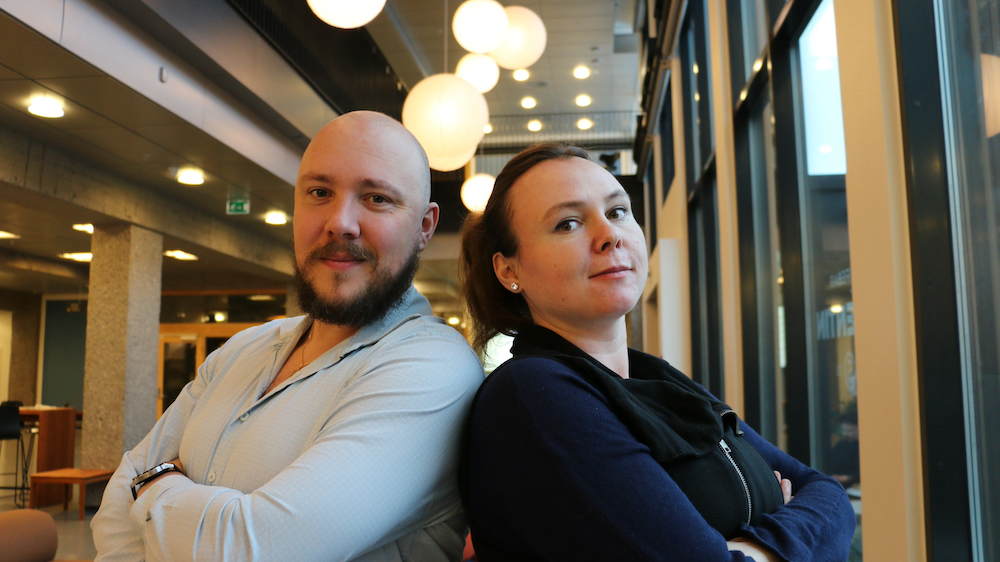Erna Davydova
The Research Council of Norway has awarded NOK 8 000 000 to Erna Davydova from the Department of Biosciences. The research project is titled: Zinc transport regulation through histidine methylation.
"I am really looking forward to starting my own research group" - Erna Davydova
Zinc transport regulation through histidine methylation
The delicate balance of zinc levels in the body is essential for human health. Zinc is absorbed and excreted via intestinal zinc transporter proteins, and perturbations of this process are associated with inflammatory diseases and cancers of the bowel. However, the precise molecular mechanisms regulating zinc transport are still unclear.
Building on the recent discovery of an enzyme which methylates zinc transporter proteins on histidine residues, this project aims to identify novel mechanisms regulating zinc homeostasis through histidine methylation of zinc transporters, to develop research tools for efficient study of histidine methylation, and to pave the way for novel treatments of intestinal diseases.
Julien Resseguier
The Research Council of Norway has awarded NOK 8 000 000 to Julien Resseguier from the Department of Biosciences. The research project is titled: New advances in fish immunology: Characterization of a newly discovered lymphoid organ and its involvement in immune responses.
New advances in fish immunology
Aquaculture faces major challenges posed by infectious diseases. Despite the importance of these issues, our knowledge of fish immunology, which is crucial for the defense against infections and the foundation of vaccination strategies, shows severe limitations. This is especially true concerning the branchial cavity region, even though it represents a major portal of entry for pathogens.
Julien recently used the well-developed zebrafish model to explore the lymphoid organization of the gills and their surrounding tissues. Resseguier discovered a tonsil-like organ in zebrafish that challenges conventional wisdom about fishes’ immune systems, which Julien named the Nemausean Lymphoid Organ (NELO). Localized at the convergence of the gills in the lower region of the branchial cavity, this organ is composed of numerous immune cells embedded in a complex network of supporting cells.
The aim of this project is to decipher the role of NELO in the fish immune responses and to determine its relevance for fish diseases and vaccines, which will provide a better understanding of the fish immune system and will contribute to the sustainability of the aquaculture industry.
Researcher Project for Young Talents
The call "Researcher Project for Young Talents (FRIPRO)" by The Research Council of Norway received 417 applications, and approved 36 of them, of which 13 were from the University of Oslo, and eight from the MN faculty.
The highly competitive FRIPRO-funding is intended to give talented young researchers under the age of 40 in all disciplines and thematic areas the opportunity to pursue their ideas and lead a research project. This call is targeted towards researchers in the early stages of their careers, 2–7 years after defence of an approved doctorate, who have demonstrated the potential to conduct research of high scientific quality.
